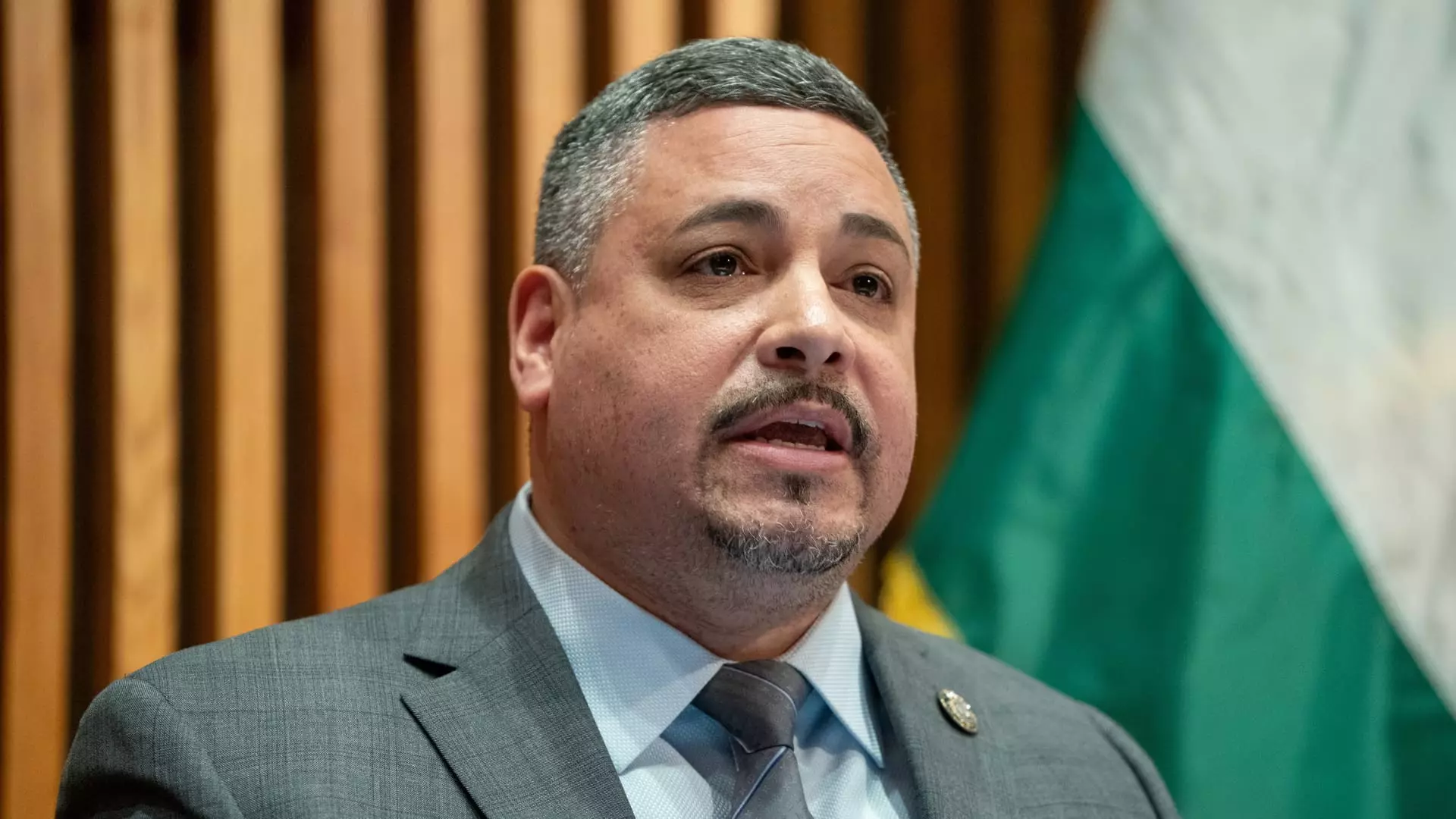On Thursday, the New York City Police Department (NYPD) faced a significant leadership upheaval with the resignation of Commissioner Edward Caban. His exit comes amidst a federal investigation concerning his department’s enforcement activities in nightclubs, marking a pivotal moment in the management of one of the largest police departments in the United States. Caban’s resignation, detailed in a memo acquired by News 4, underlines not only the challenges within the department but also broader issues concerning oversight and integrity in law enforcement.
Caban’s statement reflected the intense scrutiny surrounding his position, indicating that the “noise” from various inquiries was obstructing the vital work of the department. For someone who dedicated three decades to the NYPD, being compelled to resign highlights a critical intersection between personal integrity and public accountability.
The catalyst for Caban’s resignation is a federal investigation led by the U.S. Attorney’s Office for the Southern District of New York, which has reportedly partnered with the Criminal Investigation division of the IRS. Investigators are probing alleged ties between Caban’s twin brother, who runs a nightclub security business, and potential manipulation of police services—the commissioner’s family connections introducing risks of favoritism in law enforcement practices.
This investigation raises serious questions about the exposure of potential corruption within the NYPD. Allegations suggest that establishments in Midtown and Queens may have received preferential treatment based on financial or relational ties, possibly incentivizing officers to act against establishments that did not engage in such arrangements. If substantiated, these revelations could have sweeping repercussions not only for the NYPD but also for public trust in policing.
Caban’s resignation marks a troubling trend for Mayor Eric Adams’ administration, as this is now the third police commissioner under his leadership in less than three years. Each leadership change brings with it a myriad of challenges, and ultimately, a shift in policy and direction for the NYPD. While Mayor Adams expressed well wishes for Caban, the administrative instability raises concerns about the future of law enforcement in New York City.
Tom Donlon, an experienced figure in law enforcement, has been appointed as the interim commissioner. This transition period will be crucial. The new leadership must not only manage day-to-day operations but also address the ongoing investigation and work to restore public confidence. The NYPD’s reputation hinges on its capacity to operate with transparency and integrity—qualities now under intense scrutiny.
The turmoil surrounding Caban’s resignation inevitably impacts public perception of the NYPD. Trust is a cornerstone of effective policing, engaging community cooperation essential for crime prevention and resolution. Allegations of corruption, particularly within leadership, can erode that trust swiftly. As the investigation unfolds, the NYPD must demonstrate commitment and accountability to regain confidence among New Yorkers.
In this scenario, the role of community engagement becomes paramount. The recent developments serve as a reminder of the need for open dialogues between the police and the communities they serve—practices that may counterbalance perceptions of mismanagement or corruption.
As the NYPD navigates this challenging moment, it is vital for the department to emphasize reform and accountability. The outcomes of the investigation into Caban could set precedents for how similar cases are handled in the future. Maintaining an unwavering commitment to integrity will be essential for the new administration and for all ranks within the department.
Moreover, this resignation pushes the narrative forward concerning policy changes aimed at ensuring ethical governance in law enforcement. It opens up a broader conversation about the ethical responsibilities of police leaders and the systemic changes needed to safeguard against conflicts of interest.
The resignation of Edward Caban is more than a personal decision; it reflects larger questions about governance, accountability, and the proper relationship between law enforcement and the communities they serve. As the NYPD transitions into a new chapter of leadership, the spotlight will remain on its ability to address these pressing issues head-on.

Leave a Reply